Why You Have Itchy Skin and How To Get Fast Relief
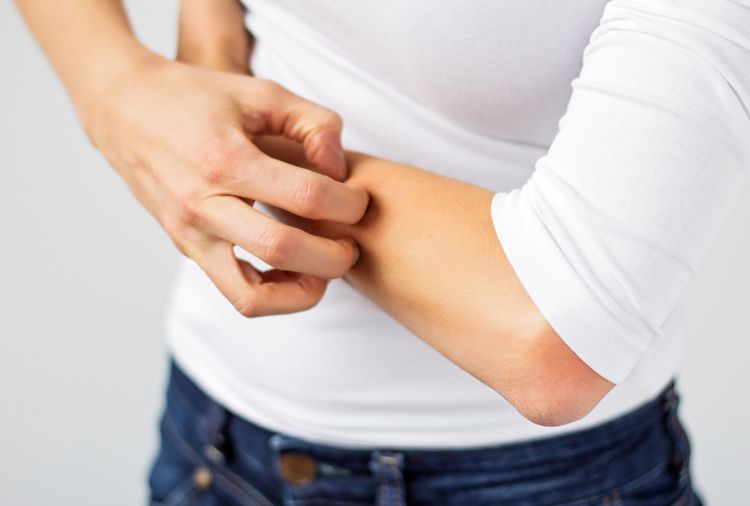
Itchy skin affects millions of people on a daily basis. For some this may be benign, but for others it can cause extreme discomfort, stress, and embarrassment depending upon the cause, severity, and location.
Let’s face it – nobody wants to be constantly scratching and fidgeting when they’re giving a presentation or out on a date!
Your skin is the largest organ in your body, and when stretched out, it averages two square meters, or roughly the size of a small blanket. It’s the largest defense system in the body that protects you from the environment.
Think of your skin as your body’s Fort Knox. Its main function is to act as a physical, chemical, and antimicrobial barrier. Each day, skin protects you from your clothing, furniture, and microorganisms; it absorbs any products you put on it, responds to weather changes, and also protects against anything you might touch or spill on it.
Not only does the skin respond to external stimuli, but it’s also significantly influenced by the internal environment of your body. How your skin is reacting or not reacting to the environment offers insight on systemic function reflecting the health of the immune system, liver, and gut. Itchy skin may develop when these systems are not functioning optimally, as we’ll illustrate soon.
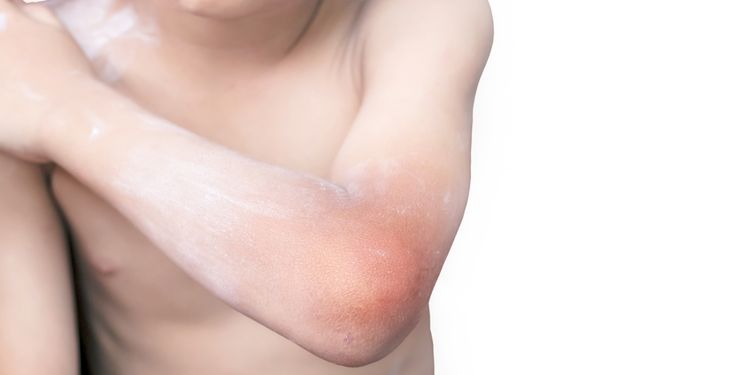
How Exactly Does Itchy Skin Occur?
Itchy skin is technically called pruritus. A simplistic way to describe how it occurs is that it happens when internal or external irritants cause inflammatory chemicals to infiltrate the region in and around skin cells and nerve endings, producing a reaction that incites the urge to itch.
Itchy skin can be described as dry, flaky, scaly, red, swollen, rash-like, thick, crust-like, weepy and/or bumpy. Most of these symptoms are associated with chronic types of itchy skin rather than acute types, which generally produce short term redness and sometimes swelling.
Short-term itchy skin, such as contact dermatitis, can be from the skin being in direct contact with the irritant. The skin can be irritated from being exposed to cold weather or substances like: poison ivy, soaps, latex, perfumes, lotions, detergents, cosmetics, wool, or jewelry made of nickel, gold, or silver.
Food and environmental allergies may also produce itching. Some people with dermatitis are sensitive to sunlight. No matter what the irritant is, if the skin remains in contact with it, the dermatitis is likely to spread and become more severe. Chronic stress can also cause or exacerbate dermatitis.

Longer-term itchy skin can stem from:
Internal diseases: These include liver/gall bladder conditions, autoimmunity to gluten (Celiac disease) or other foods, kidney failure, iron deficiency, anemia, gut infection, thyroid conditions, and certain cancers, including leukemia and lymphoma.
The inflammatory chemicals produced in these conditions are in higher concentrations and often produce itchy skin, as the liver can’t clear these substances fast enough from the bloodstream, resulting in chronically circulating irritants.
Nerve disorders: Conditions that affect the nervous system such as multiple sclerosis, diabetes, entrapped nerves, and shingles can cause itching from nerve damage.
Drugs: Reactions to drugs, such as antibiotics, antifungal drugs, or narcotic pain medications, can cause widespread rashes and itching.
Allergies: Histamine is released from the immune system when it is stimulated by allergens like pollen, bug bites, mold, dust, animal dander, and foods.

Types of Itchy Skin
Acute itchy skin, as mentioned previously, occurs from temporary exposure to environmental triggers like a fabric, lotion or cream, or laundry detergent, resulting in contact dermatitis.
Basically, anything that comes in contact with the skin that causes a short-term, local irritation can cause an acute reaction. The resulting skin irritation usually lasts hours to a few days, then resolves as the inflammatory response dissipates. Poison ivy and poison oak are more severe acute forms that may have symptoms for 1-2 weeks.
Chronic itchy skin can alternate between irritation and inflammation, followed by latent periods, and is commonly seen with hives (urticaria), seasonal allergies, or foods allergies.
It can also present with sustained inflammation and skin injury. Common causes include eczema (atopic dermatitis), psoriasis, dandruff (seborrheic dermatitis), liver dysfunction, nerve disorders, histaminosis, and medications.
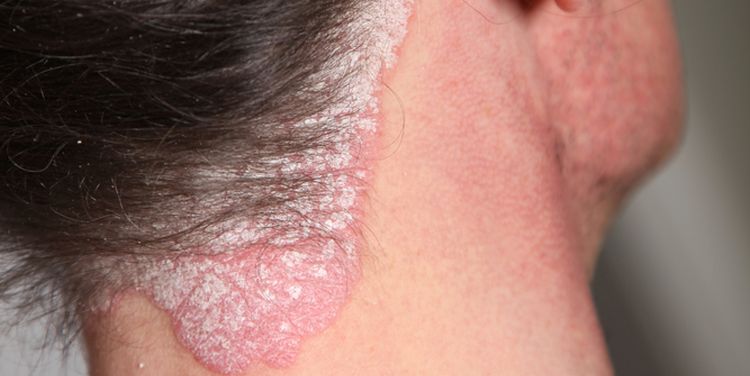
Autoimmune conditions that cause itchy skin:
Psoriasis is a chronic autoimmune disease of that causes cells to build up on the surface of the skin, leading to thick, red, scaly patches that are very itchy and sometimes painful. Up to 7.5 million Americans suffer from the disease.
Eczema (atopic dermatitis) is an inflammatory disorder in which the skin becomes covered in itchy, scaly lesions, typically on the face or in the bends of the elbows and behind the knees.
These lesions cause cracks in the skin’s outer barrier, exposing patients to infection.1 In children, it usually appears in the first year of life and almost always in the first five years. Over half of the infants who have this condition get better by the age of eighteen months.
Triggers vary with each person, but they tend to include cold or hot weather, a dry atmosphere, and exposure to allergens, stress, and infections such as colds. If other family members have histories of hay fever, asthma, or eczema, it is more likely for that child to be diagnosed with eczema.2
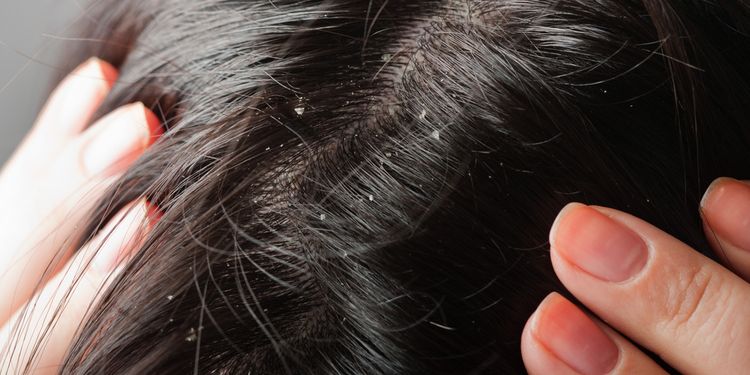
Dandruff (seborrheic dermatitis) is a red, itchy rash with flaky white or yellowish scales. It typically appears on the scalp and face. This condition may be caused by a yeast (fungus) that is in the oil secretion on the skin.
Drugs that treat these disorders down regulate, or decrease immune system functioning, leaving the body more susceptible to infections.
Dermatitis Herpetiformis is a chronic, very itchy skin rash made up of bumps and blisters that up to 25% of people with Celiac disease suffer from.12

Root Causes of Itchy Skin
Leaky gut, stress, vitamin D deficiency, histaminosis, liver/gallbladder conditions, and fatty acid deficiency can lead to chronically itchy skin.
Leaky Gut: Leaky gut occurs when the intestines become more porous than usual and particles of undigested food to enter the bloodstream, provoking the immune system and inflammatory reactions.
Leaky gut is caused by altered gut bacteria, low stomach acid or digestive enzymes, high dietary carbohydrate levels, environmental toxins, antibiotics, NSAIDs, and genetic predisposition.
Stress: The biochemical changes produced by stress alter the way the body makes protective antimicrobial chemicals for the skin. It also increases inflammation, which can cause and exacerbate skin conditions.
Vitamin D: Vitamin D influences how the immune system functions and also helps regulate normal skin growth.

Histaminosis: Histamine levels can remain elevated when it isn’t broken down fast enough or if excessive amounts of histamine are produced.
In both cases there is decreased activity of the histamine-degrading enzyme diamine oxidase, allowing histamine levels to remain consistently high. This causes allergic or atopic symptoms such as itching.
Liver/Gallbladder Conditions: Itchy skin all over the body is common with some liver and gallbladder disorders that cause high levels of bilirubin or metabolic by-products to circulate.
Fatty Acid Deficiency: Omega-3/6/9 fats reduce inflammation in the body and skin, optimize cellular membranes, and help cells retain moisture. When fatty acids are low, itchy skin can result.

Root Cause of Itchy Skin: Leaky Gut
Leaky gut occurs when there’s increased intestinal permeability as a result of stress, dysbiosis, toxins, and diet producing a local inflammatory response that causes the lining of the intestines to become be more porous.
Increased intestinal permeability causes both systemic and local inflammation, further promoting leaky gut and contributing to skin irritation and disease.
There’s a direct connection between the health of the gut and immune system and the health of the skin.
First, the lining of the intestines and the skin are both epithelial tissues, which means they have the same function and will react in the same way to irritants. Second, the functionality of the immune system is largely dictated by gut health, since 60-70% of it resides within the gut. Chris Kresser references this as the gut-skin axis or gut-brain-skin axis because of the many connections between the gut, brain, and skin.9

Gut function can greatly impact the skin in several ways. The beneficial gut bacteria influence skin health by decreasing inflammation, assisting in detoxification processes, and producing vitamins and fatty acids.
Good flora like Lactobacillus paracasei can modulate reactive skin-associated inflammatory mechanisms. L. paracasei inhibits substances released from inflammation in the skin and accelerates skin barrier function recovery in vitro.13
The gut microbiota also influence lipids and tissue fatty acid profiles, and may affect sebum production as well as the fatty acid composition of the sebum released by the skin.
The ability of the gut microbiota and oral probiotics to influence systemic inflammation, oxidative stress, glycemic control, tissue lipid content, and even mood itself has important implications in skin health.16

Root Cause of Itchy Skin: Stress
Studies have shown that both stress and gut inflammation can impair the integrity and protective function of the skin through the gut-brain-skin axis.
Chronic stress decreases antimicrobial peptides produced in the skin and increases the susceptibility of infection in the skin.14
When the skin is susceptible, it can easily be infected by external agents or microorganisms that can cause inflammation and rashes.
Additionally, anxiety can be an extremely persistent cause of stress in a person’s life, so those living with anxiety may be prone to constant eczema breakouts.
Consistent high levels of the stress hormone cortisol suppress the immune system, which can leave you vulnerable to disease and infections that produce inflammation systemically, including in the skin.15 Chronic stress also impairs the integrity of the mucosal lining of the digestive tract, leading to leaky gut.
Root Cause of Itchy Skin: Vitamin D Deficiency
Many people are vitamin D deficient, especially those with inflammatory or autoimmune (AI) conditions. Research studies show a correlation between vitamin D levels and improved AI skin conditions.
A published report found that a specific type of drug-induced psoriasis resolved after high doses of vitamin D3 were given to treat vitamin D deficiency.17 Psoriasis has also been successfully treated by using vitamin D topically.
Vitamin D levels affect skin health on multiple levels, including regulating keratinocyte (skin cell) growth and differentiation, as well as influencing the immune functions of T lymphocytes and other cells. Vitamin D also inhibits cytotoxic T cells and natural killer cell activity, potentially helping to regulate skin cell growth.16

Root Cause of Itchy Skin: Histaminosis
Histaminosis (histamine intolerance) occurs when there is dysfunction of two enzymes—either diamine oxidase (DAO) or histamine N-methyl transferase—resulting in the inability to properly break down histamine after it rises to certain levels.
Of the two systems, it’s a deficiency in the DAO enzyme system that has received the most attention as the cause of histamine intolerance. At higher levels, symptoms occur due to histamine binding to receptors on specific cells, producing a response that is often indistinguishable from allergy, including itchy skin. Excess histamine can make some existing conditions like eczema or dermatitis worse.
Some medications can release histamine, and others can reduce the effectiveness of the enzyme DAO contributing to histaminosis. Common pain relievers like non-steroidal anti-inflammatory drugs (NSAIDs), some diuretics (“water pills”), antibiotics, and antidepressants are among the medications that can affect the functioning of DAO.
There are microorganisms that are capable of producing histamine in the large bowel. Their populations can increase when gut health is suboptimal. Foods can also be high in histamine and include fermented foods, cured meats, most citrus, aged cheese, and dried fruits.

Root Cause of Itchy Skin: Liver/Gallbladder Conditions
Liver and gallbladder conditions can produce itching when these organs are not functioning efficiently due to genetic conditions, toxin excess, inflammation, infection, or physical obstruction.
These conditions result in decreased enzyme function, allowing irritating metabolic waste products, bile, and bilirubin to circulate in the bloodstream as they can’t be broken down and cleared fast enough.
This buildup of bile and waste products from liver and/or gallbladder dysfunction can cause an all over itchy sensation. Some of the more common causes of liver and gallbladder induced itching are hepatitis, cholecystitis, cholestasis, cirrhosis, gallstones, and Gilbert’s Syndrome.
Gilbert’s syndrome is a mild liver disorder that is caused by an inherited deficiency of an enzyme involved in the breakdown of old red blood cells. When they are not broken down fast enough, bilirubin accumulates in the blood, causing jaundice and itchy skin.
Cholestasis, gallstones, hepatitis, and cirrhosis produce a physical obstruction in the liver and gallbladder, resulting in elevated bilirubin and bile salt levels. Itching from excess bile salts occurs when they are deposited in skin tissues and inflammatory chemicals such as histamine are activated.
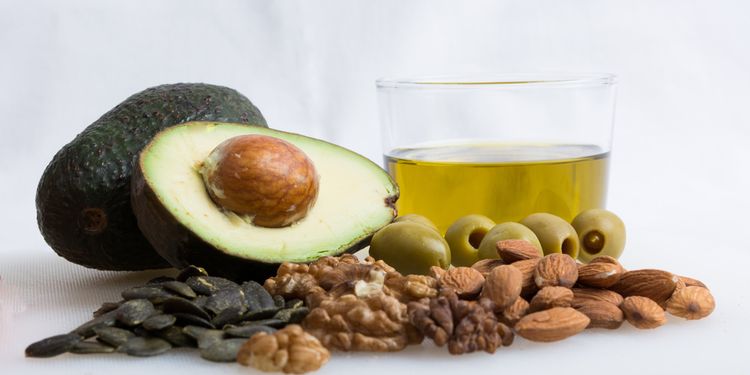
Root Cause of Itchy Skin: Fatty Acid Deficiency
Essential fatty acids are healthy fats we must get from our diet like nuts, seeds, fatty fish, avocados, and flax oil since our body can’t make them itself. These fatty acids keep your skin cells strong and protect against dehydration.
In particular, omega-3 fats switch off inflammation pathways in the body, which calms the immune system and reduces the inflammation that can be expressed as irritated skin.
Ingested essential fatty acids are directed to areas in the body that need them for optimal functioning, especially the brain and other organs. If fatty acid levels are low in the body, the extremities such as skin, hair, and nails are likely to be given their share last. Symptoms of low fatty acids include dry, bumpy, or rough skin.
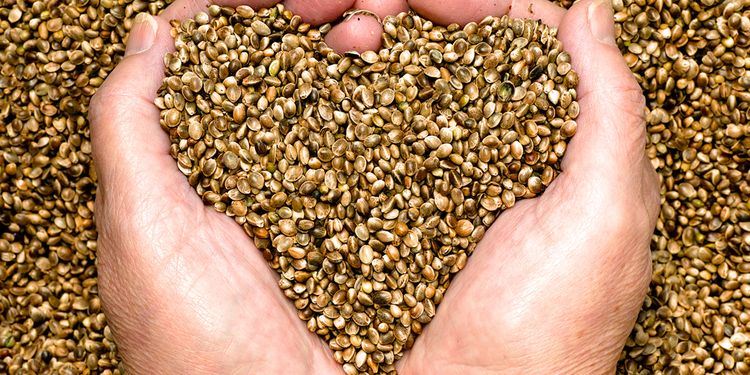
Fat metabolism requires several enzymes to function efficiently. Vitamins and minerals including zinc, vitamin B6, and magnesium are required for these enzymes to do their job properly.
Lifestyle and dietary factors that inhibit or disrupt the natural ability of the body to metabolize essential fats include smoking, alcohol consumption, caffeine, stress, diabetes, and viral infections.
Immune and inflammatory conditions have greater needs for fatty acids. During states of illness, the body has an increased turnover of the essential fatty acids as it uses them in immune and inflammatory responses, and stores can become depleted. Chronic inflammatory or autoimmune conditions often require an increased intake of the essential fatty acids for this reason.

Natural Relief from Itchy Skin
Skin care and lifestyle management are especially important when you have an active condition producing itching. The following lifestyle tips may help:
- Avoid certain fabrics, such as wool and synthetics, that can make skin itch. Switch to cotton clothing and bed sheets.
- Warm, dry air can make skin dry and cracked. Keep the thermostat in your house down and use a humidifier.
- Hot showers can worsen dry skin, so take the coldest shower you can tolerate.
- Bathe only once every 1-2 days; over-bathing can dry the skin.
- Use more natural body products versus those with chemical irritants and preservatives.
- Avoid using soap or use the least amount possible, especially in the winter or in dry climates, as that will tend to worsen your dry skin.
- After your shower, apply a natural body butter or natural moisturizing oil to help seal in moisture. Organic coconut oil is an ideal choice.
- To relieve itching, place a cool washcloth or some ice over the area that itches rather than scratching.

Natural topical remedies include oils, essential oils, bee pollen, and raw honey to moisturize, reduce inflammation, and soothe the skin. Light therapy has also shown to be very promising for some skin conditions.
Coconut Oil: Pure coconut oil is a great natural moisturizer that’s useful in treating itchy and irritated skin. It can strengthen and hydrate skin and connective tissues, exfoliate the outer layer of dead skin cells, and soothe inflammation.
Eczema and other conditions that have dry, cracked skin with open wounds can be readily colonized by the bacteria Staphylococcus aureus. S. aureus lives on your skin as a commensal organism, but it can lead to an opportunistic staph infection in this type of situation.
Coconut oil has potent antimicrobial activity because of how our body converts the lauric acid into monolaurin, which has antimicrobial properties.4 Caprylic acid, another fatty acid found in coconut oil but present in smaller amounts, also has antimicrobial activity.
Castor Oil: Castor oil is widely used in India for external application for skin conditions. It can penetrate deep into the skin and acts as a carrier for other healing substances you may mix in, such as lavender essential oil, especially when used with heat as a castor oil pack.
Therapeutic benefits of castor oil include soothing and healing skin, sealing in moisture, as well as antimicrobial and anti-inflammatory properties. The International Journal of Toxicology reports that castor oil is considered a safe product, but animal studies have shown that pure castor oil can be irritating to exposed skin. Do a “patch test” prior to applying a castor oil pack to make sure you aren’t allergic to the oil.
Other moisturizing and calming oils include shea butter, cocoa butter, jojoba oil, and palm oil.
Bee Pollen: Bee pollen offers high concentrations of nutrients and antioxidants that provide skin-boosting properties when applied topically. Taken externally or internally, it can help treat acne, eczema, and many other skin conditions.5 Raw honey applied to skin also helps speed up skin healing, moisturizes, and has antimicrobial effects.6
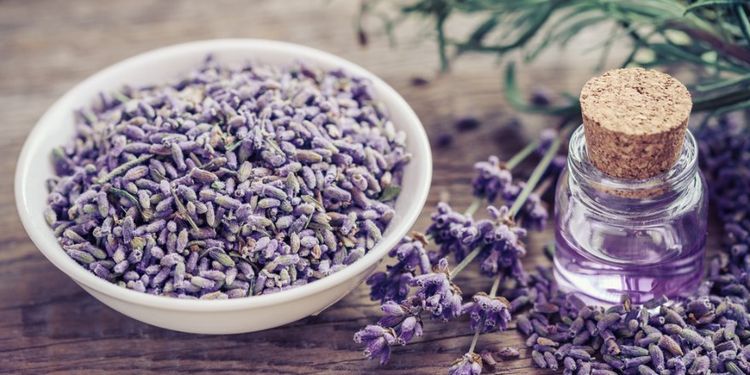
Lavender Oil: Lavender oil has antibacterial and antiviral properties as well as being a powerful agent against a range of skin-pathogenic fungal strains known as dermatophytes.7
Dermatophytosis infections are fungal infections caused by dermatophytes, which are a group of fungi that invade and grow in dead keratin. Eczema and psoriasis are commonly confused with dermatophytosis.8 Further, lavender essential oil can also be added with chamomile essential oil to help treat eczema topically.
Chamomile: Topical chamomile treatments can reduce inflammation and allergic reaction activity.
UV light therapy: Light therapy has proven to be very helpful for some patients, especially for those suffering from psoriasis.
Vitamin D: Exposure to sunlight can help you get your vitamin D levels into the therapeutic range. Some people with skin conditions are sensitive to the sun and may benefit more from taking a supplement of vitamin D3. Therapeutic levels are in the range of 50-70 ng/ml year-round and can be measured by a blood test.

Food has a significant impact on skin health. Consuming foods and supplements high in antioxidants and fatty acids restores skin health.
Healthy Fats: Omega-3 and omega-6 essential fatty acids are healthy fats we must get from our diet. Omega-3 fats reduce inflammation in the body and skin, optimize cellular membranes (which are largely composed of fat), and help cells retain moisture.
They keep your skin cells strong, enhance barrier function, and support hydration. Omega-3 fats also help calm irritated skin through anti-inflammatory activity. Fatty fish, grass-fed meat and dairy, krill and fish oil supplements, avocados, flax and chia seeds, and sprouted nuts have high omega-3 concentrations.
Evening Primrose Oil is an omega-6 oil that is a natural source of a fatty acid called GLA (gammalinolenic acid), a fat that is very hard to come by in the diet. GLA is an effective anti-inflammatory agent and supports healthy skin growth.9 The strongest evidence for Evening Primrose oil is for treating eczema.10
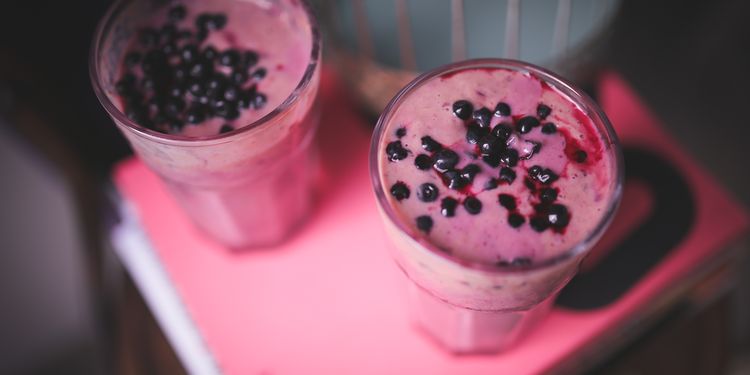
Antioxidants: Eating antioxidant-rich foods will also dial down inflammation, help support detoxification, and supply the necessary nutrients your skin needs to thrive.
Consuming adequate fresh fruit and vegetables or taking an antioxidant supplement can increase levels in the body. Juicing green vegetables can be a powerful antioxidant tonic and detoxifier.
Hydration: Cold weather dries out skin and makes skin itchy. Drink enough clean, pure water to where your urine is a light yellow color. Eating omega-3s will also help the skin retain moisture when you are hydrated. Aim for at least 64 ounces of water per day. You should increase hydration levels with exercise and in hot or dry climates.
At this point, your plan of attack is two-fold – Explore the root cause issues mentioned above, and use the natural relief methods to get that itchy skin under immediate control.
